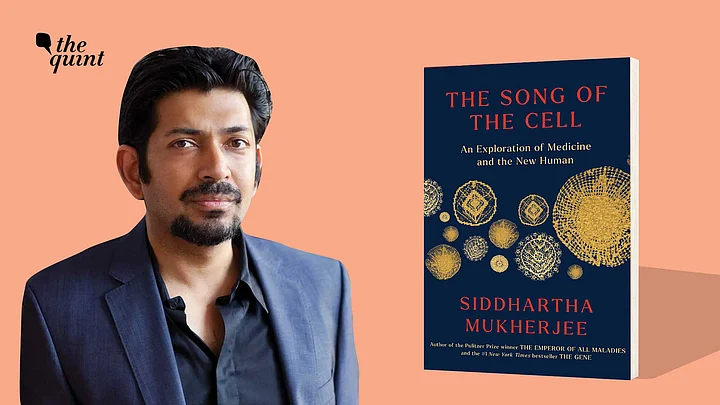Cells— the tiniest unit of every living organism can be as simple as Amoeba or as complex as animals, plants, and humans. They are so tiny that they are invisible to the naked eye. Yet, it was the entrepreneurship of Dutch cloth merchant Antonie van Leeuwenhoek who while checking the quality of fabrics in cloths, assembled what we call the first microscope and ended up discovering the cells. Some of the initial work, independent of Leeuwenhoek, done by English scientist Robert Hooke resulted in the discovery of cells.
It was Hooke who coined the term 'Cell'. Nearly five hundred years since both of their works, most of us are content to know about the cell through school textbooks.
Units That Comprise and Organise Life
We rarely pay attention to the existence of cells and believe that we know enough about them already. Terms like nucleus, cytoplasm, mitochondria, etc in biology textbooks may give us a sense that we know everything about cells which we ever need to know.
Very few would think that the cells can be the subject for a full-length book aimed at general readers. But then, Siddhartha Mukherjee is not just any other person. A cancer physician, researcher, and writer— Dr Siddhartha Mukherjee in his just-released book “The Song of The Cell” provides you an unputdownable account of the cell.
Written in a fast pace and in characteristic style of his two previous works— ‘The Emperor of All Maladies’: a biography of cancer and ‘The Gene’: an intimate history, his new book is posed at the intersection of biology and medicine. Yet, he forewarns the readers at the very beginning that the book is neither on the history nor the biography of the cell but narrates the story of its discovery (nearly three-and-half centuries ago), development of its understanding and how that knowledge can be applied to prevent and treat diseases.
The COVID-19 vaccines based upon multiple platforms such as mRNA and viral vector and CRISPR technology for which scientists have been awarded the Nobel prize are prime examples of such an approach. And also, why we continue to strive to understand the cells better.
Cells Beyond Clinical Interpretation
Lucid writing, a scholarly narrative which provides deep insight into the adventurous life of cell (and those who worked on cells), featuring in the book makes it unputdownable. With every passing page, readers get mesmerised with the depth and breadth of the content and can’t stop wondering how Dr. Siddhartha manages to be read so extensively.
The story of cell has been weaved with many fascinating stories and all with such ease and quick transitions. Remember, this is a book about cells and Siddhartha weaves in references from the TV sitcom ‘The Simpsons’ to the Story of King Bali in Ramayana with amazing deftness.
He discusses the softness of the voice of Rudolf Virchow and his calibre as a diligent and bright student amongst others and brings in Flemish Anatomist Andreas Vesalius with a transition which readers would not even notice. Many who have studied medicine and work in the field of diabetes (be it basic research, prevention, or management) read about Frederick Banting and Charles Best, the duo who discovered Insulin.
However, the book also sheds lights on the difficulties Banting faced in his clinical practice with nuanced details, about his monthly earnings which were barely enough to pay his household bills and why Banting opted for alternate sources of income and joined as a demonstrator at a facility and ended up using his time to discover Insulin (along with his student Charles Best) and the rest is history, as they say.
Is Cell Treatment Effective In Combatting COVID-19?
‘The Song of The Cell’ has been carefully structured in six sections, thoughtfully named as ‘Discovery’, ‘The one and many’, ‘Blood’, ‘Knowledge’; ‘Organs’, and ‘Rebirth’. The book examines and explores the reason behind the diseases and their treatment; delves into why some become severely ill with COVID while others not so much, the immunology and immunodeficiency and all the treatment and their effectiveness, dependent upon this tiniest unit in our body.
The book is a fascinating narration of our understanding of the mysteries of the cell over the last 350 years that is likely to advance medicine and treatments in the decades ahead.
As the world looks forward to the end of the COVID-19 pandemic and recalls the challenges of ‘infodemic’ during the pandemic, the book is a reminder that it requires years of reading, research and work to get some understanding of even the most basic units of living organisms. ‘The Songs of the Cell’ reminds each one of us how shallow our knowledge and understanding of most things are.
How Cells Revolutionised Cancer Therapy
When Mukherjee started to write this book, as he has mentioned he had chosen to dedicate the book to Rudolf Virchow— the famed German physician-scientist, philosopher, pathologist, social scientist, anthropologist, and politician. The first chapter of the book ‘The original cell’ is all about Rudolf Virchow.
However, by the time he completed his writing, he changed his mind and decided to dedicate the book to two cancer patients who were being treated with novel forms of immunotherapy and cellular therapy, respectively.
Rudolf Virchow – often referred to as the founder of ‘social medicine’ being trumped by the fascination for novel interventions and medical advancement, reflects the challenges of our time such as over-medicalisation of healthcare (which will help a counted few) but time-tested and proven health interventions still being inaccessible to the millions across the world (social medicine which Virchow propagated). There are many reasons including its revelation of inadvertent challenges posed by the scientific and medical advancement – ‘The Song of the Cell’ is a must read for everyone.
(Dr Lahariya is an Indian Physician, Columnist and lead co-author of the “Till We Win: India’s Fight Against The COVID-19 Pandemic’. He is based out of New Delhi, India.)
